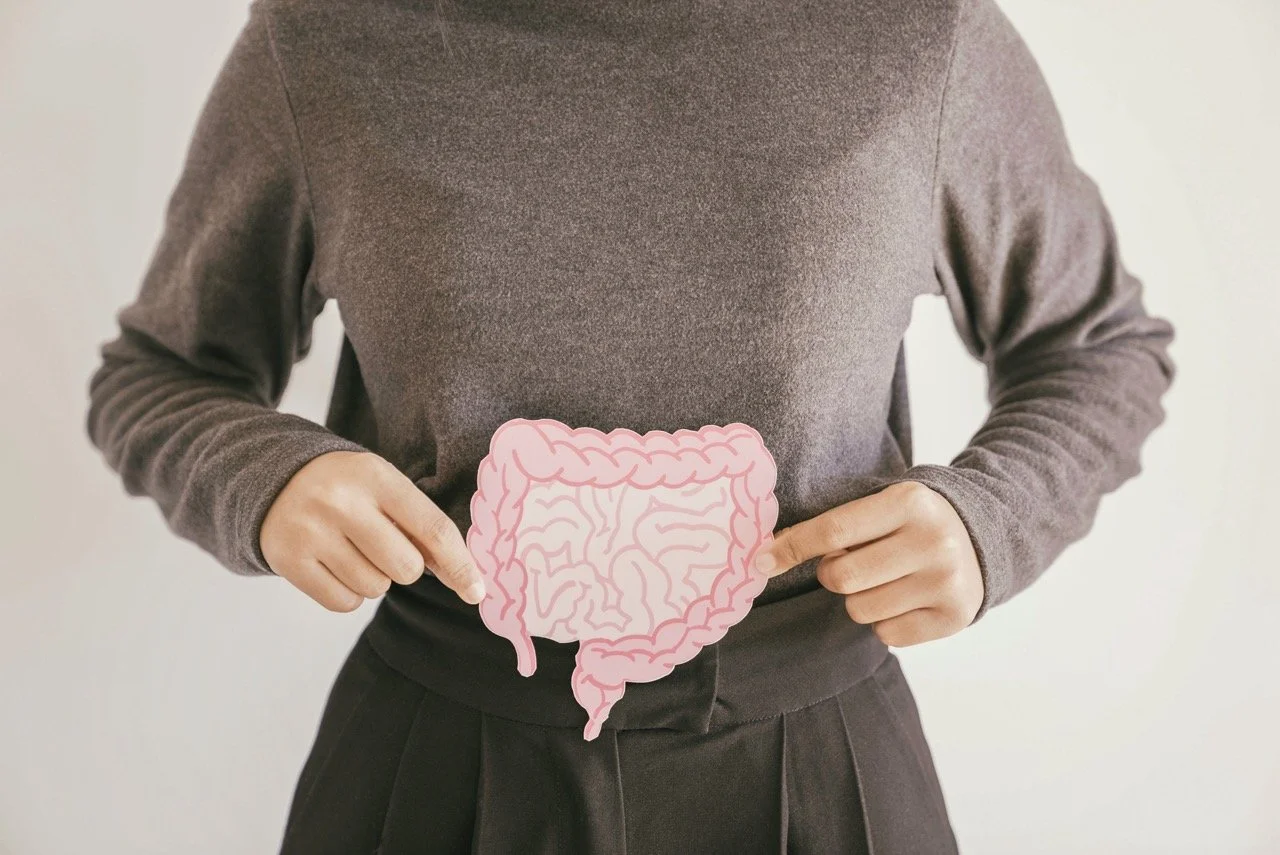Leaky Gut Explained: Causes and How to Heal
Leaky gut, also known as increased intestinal permeability, is a condition that’s gaining a lot of attention in both the scientific and wellness communities. Though not yet fully recognized by conventional medicine as a standalone diagnosis (we know they take time to catch up!), increasing evidence links leaky gut to a variety of health concerns — from bloating and fatigue to autoimmune conditions and chronic inflammation.
In this article, I’ll explore what leaky gut is, the key triggers behind it, and evidence-based ways to support healing.
What Is Leaky Gut?
Your intestinal lining is made up of a single layer of cells that form a selective barrier — allowing nutrients to be absorbed while keeping harmful substances like bacteria, toxins, and partially digested food particles out of the bloodstream. In leaky gut, this barrier becomes compromised.
The Role of Zonulin
One of the key regulators of this process is a protein called zonulin. When zonulin levels are elevated, it signals the tight junctions between intestinal cells to open — leading to increased permeability.
As a result, unwanted substances can “leak” into the bloodstream, triggering an immune response that may present as:
• Bloating and digestive discomfort
• Brain fog and fatigue
• Skin conditions (e.g., eczema, acne, rosacea)
• Joint pain
• Food sensitivities
• Autoimmune flares
What Causes Leaky Gut?
Leaky gut is often the result of chronic inflammation and exposure to irritants. Key contributors include:
Dietary Triggers
• Gluten: Especially gliadin, shown to increase zonulin release
• Refined sugars: Feed harmful bacteria and promote inflammation
• Processed and fried foods: Avoid fried foods which damage the gut lining over time. Other irritating food additives are gums, carrageenan, sulphites, nitrates, polysorbates and MSG.
• Food sensitivities: Repeated exposure to reactive foods (e.g., soy, corn, eggs, dairy) can perpetuate gut lining damage
I will often recommend doing food allergy and/or sensitivity testing for my highly reactive clients. While these are not 100% accurate, they can help guide us in eliminating specific foods without over-restriction. For those who do not wish to complete this testing, an elimination diet is always an alternative to help discover triggers.
Medications
• NSAIDs (e.g., ibuprofen, aspirin): Known to increase intestinal permeability with long-term use
• Antibiotics: Disrupt the gut microbiome, creating imbalance and further dysbiosis
Lifestyle Stressors
• Chronic stress: Disrupts digestion and increases cortisol, which weakens the gut barrier
• Poor sleep: Impairs healing and immune regulation
• Sedentary lifestyle: Regular movement supports gut motility and anti-inflammatory pathways
• Alcohol: Directly irritates the gut lining and microbiome balance
It’s important to understand how bacterial overgrowths like we see in SIBO also play a role. Excess gas in the small intestine leads to inflammation, which in turn weakens the gut barrier.
How to Heal a Leaky Gut
Fortunately, the gut has a powerful ability to heal — when given the right tools.
Here’s a holistic approach to repairing intestinal permeability:
1. Remove the Irritants
• Eliminate or reduce common inflammatory foods (gluten, dairy, refined sugar, alcohol)
• Consider an elimination diet or a personalized food sensitivity panel (reach out to me for this test)
2. Rebuild the Gut Lining
• L-glutamine: A key amino acid that fuels enterocytes (intestinal lining cells)
• Collagen peptides or bone broth*: Rich in glycine and proline, which support tissue repair
• Zinc carnosine: Shown to help repair mucosal lining. Take it with food.
• Marshmallow root & slippery elm: Herbal demulcents that soothe the gut lining
* Get my healing Bone Broth recipe here.
3. Rebalance the Microbiome
• Consider microbiome testing like the GI-MAP to identify pathogens, overgrowths or dysbiosis, and a SIBO Breath Test to identify overgrowth in the small intestine. The need to address any imbalance is paramount to heal the gut lining.
• Use probiotics (choose strains like Lactobacillus rhamnosus GG or Saccharomyces boulardii) to support healthy gut flora.
4. Support Detox Pathways
First ensure you open up elimination routes — liver, lymph, and colon — so toxins aren’t rerouted through the skin or reabsorbed. You can incorporate practices like:
• Daily movement
• Hydration
• Dry brushing
• Sauna or sweating + binders
5. Manage Stress
As always, building stress resilience comes as a recommendation. Ways to do this include breathwork, meditation, vagus nerve activation, tapping (aka EFT), and other nervous system regulation techniques can make a significant difference in long-term healing.
⸻
Leaky gut isn’t just a buzzword. It’s a foundational issue that can underlie a range of symptoms and chronic conditions — especially when paired with microbiome imbalance and inflammation. Addressing it requires a personalized, comprehensive approach.
If you’re unsure where to start, consider working with a functional health practitioner and utilizing tools like functional lab testing or an elimination diet to uncover your root causes.

